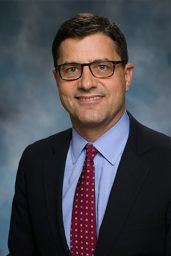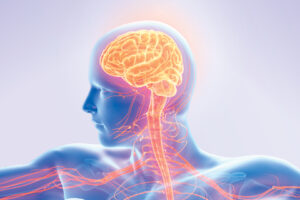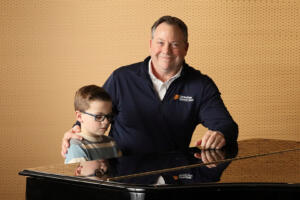The odds are that you know or will know someone who suffers from dementia. After all, an estimated 1 in 6 women, and 1 in 10 men who live past the age of 55 will develop dementia during their lifetime. This disease robs one’s quality of life during their golden years, causing non-reversible loss of memory, language, executive functioning, personality traits, and the ability to perform everyday activities.
Of these individuals, about 70% suffer from the most common and recognized type of dementia, namely Alzheimer’s disease—a progressive form that destroys brain cells and slowly degenerates memory, thinking, behavior and basic bodily functions. The facts and figures related to Alzheimer’s are staggering. In 2016, there are about 5.4 million Americans living with Alzheimer’s and someone new in the U.S. develops the disease about every 66 seconds. In fact, today, it is recognized as the sixth leading cause of death among U.S. adults, killing more individuals than breast and prostate cancer combined. These numbers will only continue to rise with the aging of our U.S. population.
Yet, despite the visibility and impact, there is no known cure for Alzheimer’s. It is the only disease among the top 10 causes of death in America that cannot be cured. Still-emerging treatments, therapies and medications can at best delay the onset and progression and may help with cognitive and behavioral symptoms. But, as with all life-threatening diseases, hope remains eternal.
New treatments and drugs – long way to go, but progress
Researchers continue to look for ways to alter the course of Alzheimer’s and improve the quality of life for those afflicted. There are hundreds of clinical trials underway nationwide focused on Alzheimer’s. Some of the first promising therapies in decades are coming to the fore, and such Alzheimer’s and related dementia research is critical. This is particularly true when you consider that new drugs take years to produce from concept to market.
In terms of medications, there truly is no reliable way to reverse dementia and Alzheimer’s. None of the pharmacologic treatments available today will stop the damage of brain neutrons that cause Alzheimer’s disease. However, about half of those patients who take the drugs have shown signs of slowing symptoms and have gained comfort, improved cognitive functioning and restored dignity for a period of time.
There are few FDA-approved drugs to treat Alzheimer’s—acetylcholinesterase inhibitors (such as galantamine, rivastigmine and donepezil) for mild to moderate cases, and Namenda®, memantine prescribed for those with moderate to severe conditions. They help certain brain transmissions involved with memory, and are able to temporarily slow the clock, boosting short-term memory for a time by increasing the amount of chemicals called neurotransmitters in the brain. These medications, however, do not stop the disease’s relentless advancement in the brain or treat the underlying causes of Alzheimer’s.
Focus at CentraState Medical Center is on detection and awareness
Although the onset of Alzheimer’s disease cannot yet be stopped, researchers believe an early diagnosis can allow a person the opportunity to live well with the disease for as long as possible and plan for the future. Early detection is key, diagnosing the disease earlier and more accurately before symptoms even appear, especially for at-risk individuals.
Across the CentraState Healthcare System, we are focused on Alzheimer’s disease and all forms of dementia, and have made strong efforts, particularly in the area of awareness and education for those afflicted or at risk, and their caregivers. This is one of my primary areas of focus as a geriatrician within the Family Medicine Center at CentraState Medical Center, and as medical director for The Manor Health & Rehabilitation Center. I also treat residents at our senior living community, Applewood, and at CentraState’s assisted living residence, Monmouth Crossing. For individuals with special needs, including memory-related disorders, Monmouth Crossing features Heritage Corner, a dedicated living environment with amenities designed to maximize independence. Monmouth Crossing is a member of the Alzheimer’s Association of New Jersey.
At CentraState, we’re also proud of the work being done here by Dr. Zeeshan Khan. Dr. Khan decided to stay local and do his residency and Geriatric Fellowship at CentraState and he is conducting research on non-pharmacologic interventions—such as music therapy and pet therapy—to help with dementia behaviors. The importance of these interventions is recognized at the CentraState long-term care facilities and many behavioral intervention programs are in place. Evidence supports these programs can improve the health of our elderly patients by decreasing behavioral symptoms such as depression and anxiety.
People find the changes in behavior caused by Alzheimer’s to be the most challenging and distressing aspect. In early stages, people may experience irritability, anxiety and/or depression. In later stages, other symptoms may include anger, aggression, emotional distress, physical outbursts, restlessness and delusions.
CentraState Medical Center: The only memory screening site in Central New Jersey
CentraState Medical Center is proud to have been recently selected by the Alzheimer’s Foundation of America (AFA) as one of only 11 memory screening sites in New Jersey, and the only site in Monmouth County. CentraState will administer memory screenings and provide educational materials about memory concerns, brain health and successful aging to anyone experiencing warning signs of Alzheimer’s or dementia. These screenings are non-invasive and quick, consisting of questions and tasks designed to gauge memory, language and thinking skills. In fact, a recent study suggests that memory screenings may detect cognitive impairment up to 18 years prior to clinical diagnosis of Alzheimer’s disease or dementia.
CentraState Medical Center’s Physician Finder offers an extensive roster of highly skilled, board-certified doctors, including geriatricians. Search by name, location or area of specialty, by visiting online or by calling 866-CENTRA7 (866-236-8727).
 Joshua J. Raymond, MD, MPH, FAAFP, CMD is board-certified in family medicine, geriatric medicine and palliative care. He is an Assistant Professor and Geriatric Fellowship Program Director, Rutgers Robert Wood Johnson Medical School/CentraState. He maintains practices in Freehold and in Jackson, NJ, at Family Healthcare at Bartley Center. Dr. Raymond can be reached by calling 866-CENTRA7.
Joshua J. Raymond, MD, MPH, FAAFP, CMD is board-certified in family medicine, geriatric medicine and palliative care. He is an Assistant Professor and Geriatric Fellowship Program Director, Rutgers Robert Wood Johnson Medical School/CentraState. He maintains practices in Freehold and in Jackson, NJ, at Family Healthcare at Bartley Center. Dr. Raymond can be reached by calling 866-CENTRA7.





